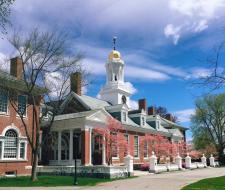Study music abroad
-
 "5th Highest Performing School by A Level results in 2023" – The Telegraph.
"5th Highest Performing School by A Level results in 2023" – The Telegraph. United KingdomYorkCurrently watching: 7from 23330.00 £ / term
United KingdomYorkCurrently watching: 7from 23330.00 £ / term -
 In 2023 100% of students achieved A*– B grades at A-level
In 2023 100% of students achieved A*– B grades at A-level United KingdomLondonCurrently watching: 9from 20300 £ / terms
United KingdomLondonCurrently watching: 9from 20300 £ / terms -
 One of the most selective schools in the USA
One of the most selective schools in the USA USABoston, MassachusettsCurrently watching: 6from 25600 $ / terms
USABoston, MassachusettsCurrently watching: 6from 25600 $ / terms -
 #1 school in UK and Top-1 worldwide for IB results in 2021
#1 school in UK and Top-1 worldwide for IB results in 2021 United KingdomCardiffCurrently watching: 7from 16500 £ / terms
United KingdomCardiffCurrently watching: 7from 16500 £ / terms -
 By far the best school in Texas, outstanding facilities and accommodation
By far the best school in Texas, outstanding facilities and accommodation USAHouston, TexasCurrently watching: 6from 25225.00 $ / year
USAHouston, TexasCurrently watching: 6from 25225.00 $ / year -
 Top school in the UK at A Level during the past eleven years
Top school in the UK at A Level during the past eleven years United KingdomCardiffCurrently watching: 7from 23800 £ / terms
United KingdomCardiffCurrently watching: 7from 23800 £ / terms -
 94% of graduates successfully enroll universities, including Ivy League universities
94% of graduates successfully enroll universities, including Ivy League universities USAMiami, FloridaCurrently watching: 7from 28680.00 $ / year
USAMiami, FloridaCurrently watching: 7from 28680.00 $ / year -
 In 2023 – 37.5% of A-level students achieved A* - A.
In 2023 – 37.5% of A-level students achieved A* - A. United KingdomLondonCurrently watching: 6from 12300.00 £ / term
United KingdomLondonCurrently watching: 6from 12300.00 £ / term -
 from 29130.00 $ / semester
from 29130.00 $ / semester -
 According to information for 2019, 78% of graduates received grades 5-4 for AP subjects
According to information for 2019, 78% of graduates received grades 5-4 for AP subjects USABoston, MassachusettsCurrently watching: 9from 23330 $ / terms
USABoston, MassachusettsCurrently watching: 9from 23330 $ / terms
Art is an international language that everyone can understand, so studying music abroad seems much more real than, say, sociology. However, music education abroad also requires language, communication skills, not to mention professionalism: only one-tenth of those wishing to enter prestigious music universities and colleges are selected. The field of music education is constantly evolving, and each country has its own traditions of teaching. If in England they take specialized music education quite seriously, then in Norway, among other programs offered in English , there is an "In-depth study of solo or chamber music", and you can master it for free.
Alternative destinations
Music education in Europe: tuition fees
Music in the Western world is incredibly popular, and many people in Germany, the USA and England are engaged in it: the tradition of school orchestras and ensembles, vocal lessons, and “garage” music groups are developed.
Germany
The number of music schools in Germany is about 1000 public and almost 350 private. In recent years, an increased interest in the sources has been recorded: classical music gathering full halls is in fashion. More than three million Germans are seriously engaged in music and one and a half million future musicians are studying in art schools, with the piano being the favourite, followed by guitar and violin. The cost of studying depends on the number of students and is about 50 € per month for a group of two children, with an increase in their number, the cost decreases. Private school is almost twice as expensive.
Music universities in Germany are distinguished by the fact that the admission committee is enough to demonstrate talent directly in their musical profile, passing theoretical, practical, language exams. Academies have different requirements for language testing: DSH, TestDAF, Sprachdiplom (and in Musikhochschulen they can even be allowed to take the test at the end of the first year of study).
England
There are fewer public schools in England - private lessons and Saturday schools at art academies are more common here. The main convenience of the English system is that two specialized commissions are involved in assessing the level of a musician, having passed exams on the system of which you can safely submit documents to a college or university. English music institutions of higher education are invariably in TOP-10 world rankings. To enter here, you must be fluent in English.
The Czech Republic
Music universities in Prague are also among the popular European educational institutions. The greatest demand here is for the departments of vocal, production and composing: the competition for them is up to 15 people per place. However, you need to be careful when choosing an educational institution: for example, the Modern Prague Conservatory, despite its status, does not provide higher, but secondary education, so you can go there after the 9th grade of a comprehensive school.
France
In France, studying music at the level of higher professional education for the most part comes down to theoretical specialties, but the skills of a performer can be acquired in the so-called higher schools of art.
When you enter the university, sometimes you can even avoid full-time listening: the decision is made on the basis of a motivation letter and a package of documents. Admission to a state university can be organized on a free basis. Organization fees are about 600 € per year, and monthly living expenses in Paris are at least 1000 € (although in the provinces it is much less).
But higher school makes more stringent requirements, in practice, without passing special preparatory programs, it is unrealistic to act. But the diploma of the French higher school of art at a great price.
TOP music educational institutions
According to the Muztorg version, 5 best music educational institutions in the world include:
1. The Juilliard School, New York
Here Henry Mancini, who wrote soundtracks for famous films, a five-time Oscar winner John Williams studied. Only about 8% of applicants wishing to enter this university receive a positive answer.
Half of the musicians on the stage of the Lincoln Center are Julliard graduates, who have received 105 Grammy awards, 24 Oscars, 16 Pulitzer Prizes and many other awards over the years of their professional practice.
2. Berklee College of Music, Boston
Berkeley is practically inferior in popularity to The Juilliard School, although his program is somewhat far from classical and focuses on contemporary art: jazz, rock, pop music. Here you can learn how to manage labels, concert venues. Berkeley composer and graduate John Kaska, who collaborated with John Williams and works in Hollywood, believes that in the early 90s not a single musical university in the world could compete with him in equipment and methods of presenting material: the university had seven recording studios.
3. The UCLA Herb Alpert School of the Music , Los Angeles
The UCLA Music Department teaches jazz, techno, musical theater and even heavy metal courses! Popular among applicants is the music studies department of UCLA, where they study world musical traditions. The music school of the popular Los Angeles University includes film scoring, where they are taught to create a number of compositions designed for the musical accompaniment of the film.
4. Royal College of Music, London
From the windows of the Royal College of Music you can see the legendary Albert Hall. More than two thousand students and graduate students study: for their comfortable rehearsals and performances, the English National Ballet voluntarily provide several rooms a few years ago. The Royal College of Music student orchestra has reached such a high level that its piggy bank already has many musical accompaniments for films, including the soundtrack of Alan Silvestri to the legendary film "Back to the Future".
Among the attractions of the college is an extensive library of notes and manuscripts, a museum of ancient instruments. Children 9-13 years old have an opportunity to attend courses at Royal College.
5. Guildhall School of Music and Drama, London
It is among the first conservatories in the UK, where about a thousand students from all over the world study. Theater and music here go hand in hand, teach them in tandem. The conservatory program includes:
- courses of guitar and other stringed instruments
- vocals and opera
- electronic music
- jazz and compositions.
Students of the conservatory have an opportunity to be part of:
- Barbican center
- London symphony
- Bbc symphony orchestras
- Royal opera house
- Academy of Ancient Music.
Among the conservatories, the Amsterdam Conservatory is also famous not only with architecture, but also with an extensive range of programs: from archaic music and immortal classics to modern jazz. Lovers of early music here have unique opportunities to touch authentic historical instruments and to join the tradition of Gustav Leonhardt - the famous performer of Baroque music: until 2012, this great musician taught at the Academy of Amsterdam and Harvard. Foreign students are welcome here, including those who do not speak German - English-language programs here are as popular as German programs.
Career prospects for graduates abroad
A professional musician in Europe can receive high salaries - from 3000 € and higher. However, up to the moment of professional recognition, the salary may be insufficient.
In France, there is the concept of Intermittent du Spectacle - a status that gives a musician the right to receive allowance from the state for a pause between tours.
Best music universities in Britain 2026 | Complete University Guide
|
Rank |
Institution |
|
|---|---|---|
| 1 | Cambridge | |
| 2 | Oxford | |
| 3 | Durham | |
| 4 | Manchester | |
| 5 | Surrey | |
| 6 | King's College London | |
| 7 | Leeds | |
| 8 | Bristol | |
| 9 | Sheffield | |
| 10 | Royal Holloway, University of London | |
| 11 | Southampton | |
| 12 | Guildhall School of Music and Drama | |
| 13 | Birmingham | |
| 14 | York | |
| 15 | Royal College of Music | |
| 16 | Bangor | |
| 17 | Royal Academy of Music | |
| 18 | Plymouth | |
| 19 | Cardiff | |
| 20 | Royal Northern College of Music | |
| 21 | Queen's, Belfast | |
| 22 | Birmingham City | |
| 23 | Nottingham | |
| 24 | Edinburgh | |
| 25 | Glasgow | |
| 26 | Brighton | |
| 27 | Royal Conservatoire of Scotland | |
| 28 | Newcastle | |
| 29 | Keele | |
| 30 | Trinity Laban | |
| 31 | Liverpool | |
| 32 | Kent | |
| 33 | Huddersfield | |
| 34 | Ulster | |
| 35 | Chester | |
| 36 | Goldsmiths, University of London | |
| 37 | Sussex | |
| 38 | Lincoln | |
| 39 | Winchester | |
| 40 | Edinburgh Napier | |
| 41 | East London | |
| 42 | Chichester | |
| 43 | West of Scotland | |
| 44 | Aberdeen | |
| 45 | Falmouth | |
| 46 | City, University of London | |
| 47 | Bath Spa | |
| 48 | Staffordshire | |
| 49 | Salford | |
| 50 | York St John | |
